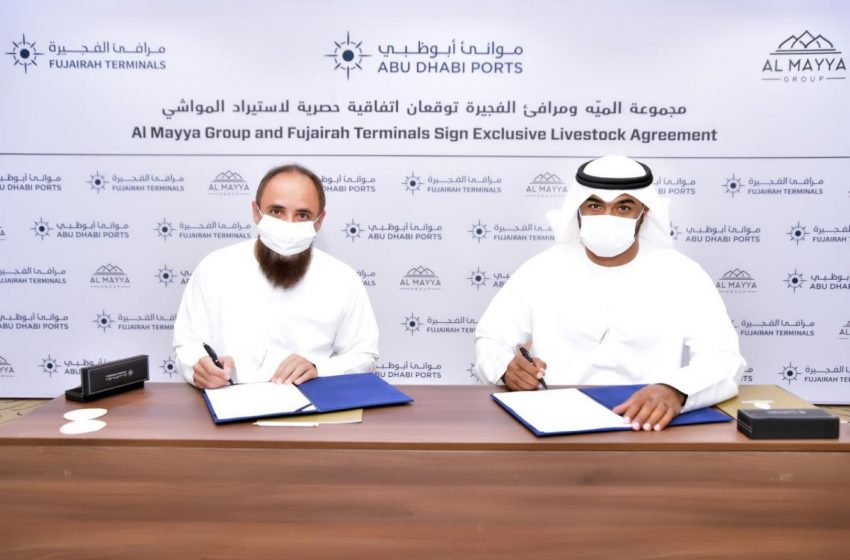Fujairah Terminals, Al Mayya Group sign exclusive livestock agreement

Fujairah Terminals, a subsidiary of Abu Dhabi Ports, and Al Mayya Group, have today announced the signing of an agreement to handle the livestock logistics for the annual import of more than a million sheep, goat and cattle into the UAE.
In one of the largest contracts of its kind in the UAE, Fujairah Terminals will grant Al Mayya Group exclusive rights to service livestock at a specially designated quarantine and berth area situated within its terminal facilities at the Port of Fujairah.
Fujairah’s strategic location on the UAE’s eastern seaboard ensures a much shorter sailing time to and from key destinations including East Africa. The port, situated on the Arabian Sea, lies within 300km of all seven emirates. Thanks to the country’s highly advanced road network, it will easily connect Al Mayya Group’s allocated port-side area to its other inland facilities across the UAE.
AbdulAziz Al Balooshi, CEO at Fujairah Terminals, said: “Fujairah Terminals’ landmark agreement with Al Mayya Group demonstrates our ability to tailor customer-centric solutions that enable the streamlining and enhancement of global trade.
“Underscored by the support of the Government and Abu Dhabi Ports’ advanced technology and handling capabilities, Fujairah Terminals is well equipped to meet the market’s increasingly wide spectrum of demands and requirements.
“As the only multipurpose port on the UAE’s eastern seaboard, Fujairah Terminals’ advanced infrastructure and ultra-modern facilities is ideally placed to readily connect and handle inbound sensitive cargo directly from East Africa.”
Suliyman Halbouni, CEO, Al Mayya Group, said: “Today’s agreement with Fujairah Terminals marks a significant step forward in Al Mayya Group’s ability to streamline its livestock logistics and improve economies of scale, working closely with our partners to serve the direction and vision of the UAE leadership protocol for regional food security and sustainability.”
WAM

